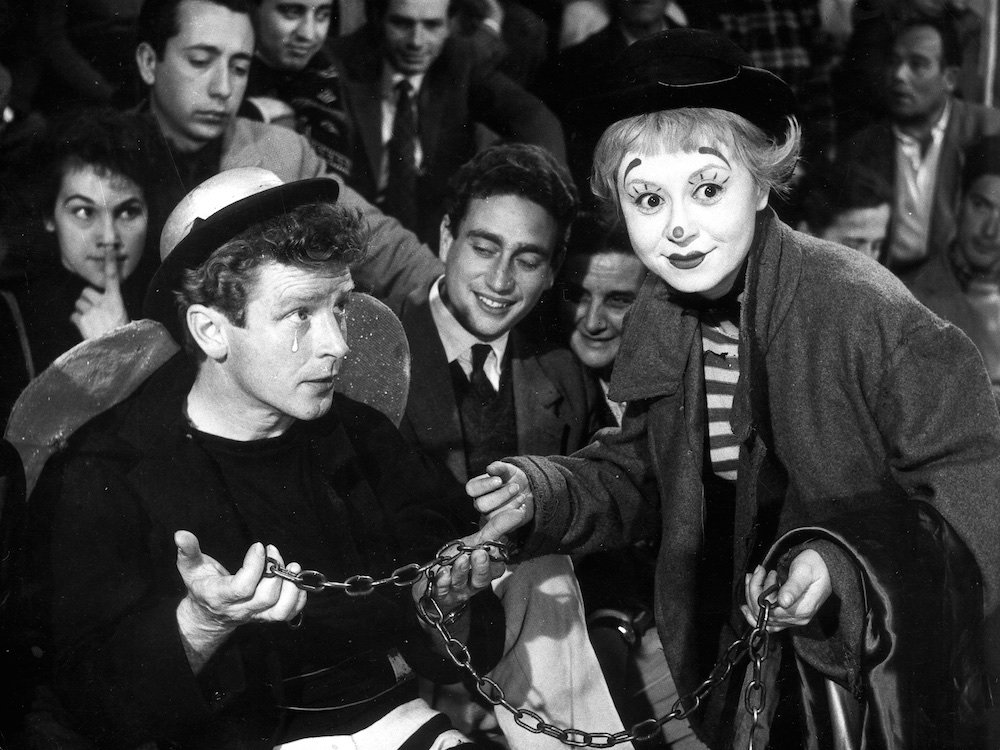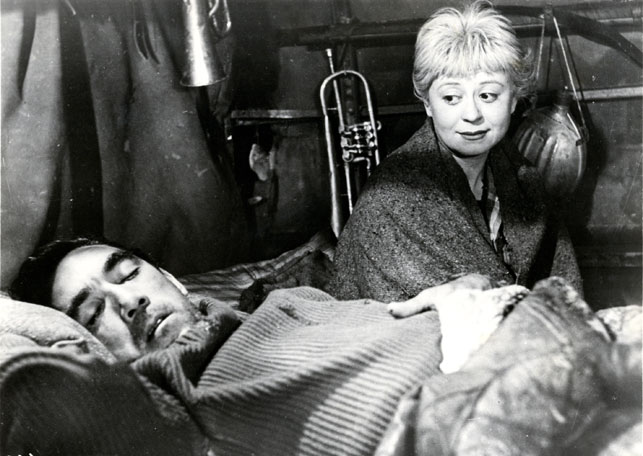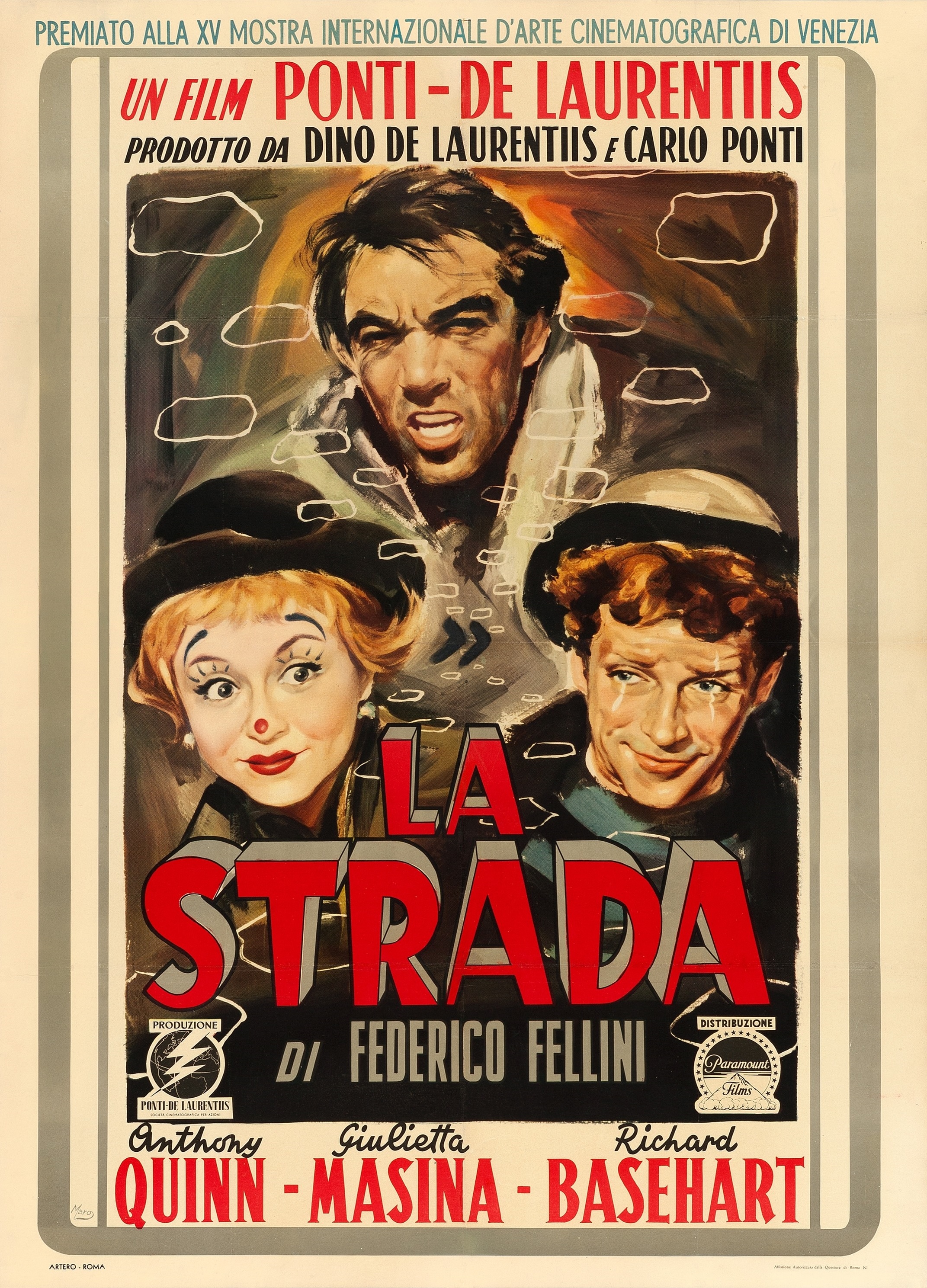A few volunteers from Team Experience are revisiting Federico Fellini classics for his centennial. Here's Mark Brinkerhoff...

My first recollection of watching La Strada is in a class at school as a youth. Oddly though, I neither can recall which class nor at what age exactly I saw it. But Federico Fellini’s 1954 breakthrough is nothing if not a film that sticks with you, like a bracing force which leaves an imprint that lasts.
A masterwork in Italian neorealism, La Strada (“The Road”) is set largely against the backdrop of a traveling circus, centering on a triangle of sorts between a trio of street performers...
There's a brutish lout named Zampano (Anthony Quinn), a shy young woman, Gesomina (Giulietta Masina, Fellini’s real-life wife), whom he buys into servitude, and a fellow performer known as “The Fool” (Richard Basehart) who becomes both a wedge and an unlikely liberator. The ways in which these characters converge, diverge, then converge again have ultimately tragic consequences, which Fellini threads beautifully, if bleakly, gorgeously filmed in black and white.
That the film even got made is something of a minor miracle. A famously tortured production—the director suffered a nervous breakdown during the shoot—La Strada owes its success as a compelling narrative not just to the eccentric characters who populate the margins and center, but also to the internationally diverse group of actors whom Fellini cast in the first place.

Quinn, a Mexican-born American actor, was part of the fantastic diaspora of Hollywood stars who decamped to Italy in the ‘50s to work with such greats as the recently celebrated Dino Di Laurentiis, Carlo Ponti, and Roberto Rossellini. Fellini himself was the beneficiary of Quinn’s pulsing energy, which he put to good use as the strongman here. There’s a gruffness to it, too, that pairs well with the diminutive demureness of Masina, who nevertheless demonstrates she is more than meets the eye.
It might be easy, especially at the time, to discount the Italian actress as merely a tabula rasa her filmmaker husband used to project and reflect his own designs, but to give such short shrift would be wholly unfair considering the subtle yet potent shadings Masina lends her character. Gesomina is the beating, battered heart of the film, soulfully grounding a story which easily could’ve devolved into cartoonish buffoonery without a deft touch.
 La Strada may have the most elongated awards trajectory in movie history. The film premiered in the fall of 1954 at the Venice Film Festival, where Fellini went on to win the Silver Lion. For the next three years it went on to be honored by critics and cinephiles around the world, culminating in its nabbing the very first Oscar for Best Foreign Language Film in 1957. And a richly deserved Academy Award win it certainly was.
La Strada may have the most elongated awards trajectory in movie history. The film premiered in the fall of 1954 at the Venice Film Festival, where Fellini went on to win the Silver Lion. For the next three years it went on to be honored by critics and cinephiles around the world, culminating in its nabbing the very first Oscar for Best Foreign Language Film in 1957. And a richly deserved Academy Award win it certainly was.
The Criterion Channel is streaming La Strada all month, along with many Fellini classics.